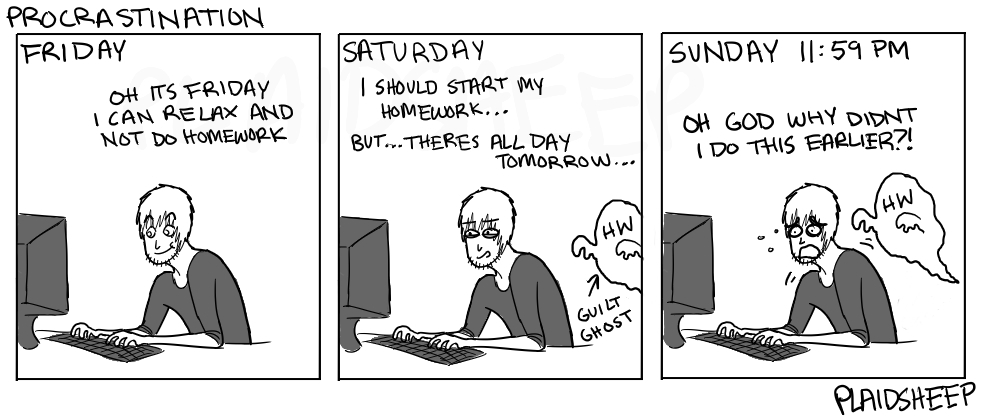Procrastination a good thing?! Sounds crazy right? Procrastinating can’t possibly be a viable approach for our work, except sometimes it’s exactly that.
Before we dive into this idea, we have to understand that there are two types of procrastination: unproductive vs. productive.
Unproductive procrastination is what we don’t want to do. It is complete and total avoidance of a situation. We don’t want to work on it, we don’t want to think about it, and we don’t want to acknowledge it.
As the name suggests, unproductive procrastination is not very useful and is certainly not the type of procrastination I’m talking about here.
Productive procrastination on the other hand, can be empowering. This is the procrastination that is not driven by avoidance, but rather uncertainty.
We’re willing to work on the task at hand, but we’re not quite sure how to tackle it. We allow things to marinate, to incubate, as we wrap our heads around the problem we face. This is where procrastination shines.
You call it procrastinating, I call it thinking.Aaron Sorkin
Productive procrastination is essentially thinking. It is a process that allows us to understand what we’re facing and how to deal with it.
Here are 3 ways that productive procrastination can be a good thing.
1. Allows us to fully understand
Diving right in can be useful, but sometimes we need to truly understand a problem before we can start thinking of a solution. Procrastination can be the perfect approach in these situations.
It gives us time to think about what we are facing and try to better understand it. Things like research, brainstorming, and exploration, while not seen as essential work, can guide us towards the answers we are looking for.
Doing the work straight away, isn’t always the best approach, especially when we lack understanding.
2. Helps us break barriers
Similar to understanding, is helping us overcome a barrier when we get stuck. Sometimes we just don’t know how to deal with a problem. In such cases, we can either bang our heads against the wall or we can walk away and allow things to marinate.
This is where we can incubate our ideas and thoughts in our subconscious as we do other things. Eventually, a novel idea will bubble up to the top and show us what to do next.
3. Boosts our creativity
The biggest benefit from productive procrastination comes in the form of creativity. When we allow our minds to wander and incubate our work, we often discover new ideas that can help us solve any problem.
The beauty of productive procrastination is that the thing we are procrastinating on is always in the back of our minds. It is framing the world through its lens.
This means that we’re always subconsciously aware of experiences and thoughts that may be useful to our work, which leads to more original ideas.
____________
P
rocrastination can be a powerful tool when used correctly, but the biggest caveat in doing so is having enough time.
If we don’t have the luxury to procrastinate, it’s not the best approach. When we’re under the gun, we often get our work done, but it ends up being the path of least resistance, not the most novel or original or well thought out ideas. In these situations, we don’t have the opportunity to incubate ideas or think through solutions. So when time is lacking, we’re better off just doing the work, rather than trying procrastinate at all.
In these situations, we don’t have the opportunity to incubate ideas or think through solutions. So when time is lacking, we’re better off just doing the work, rather than trying procrastinate at all.
More importantly, we need to understand that procrastination isn’t such a bad thing. We shouldn’t get down on ourselves if we wander off task now and then, because our minds are still working towards our goals.
Sometimes, procrastination is exactly what we need.
